Distanced from assistance: Rampant health problems in Gadsden mirror coronavirus risk factors
This story was produced as part of a larger project for the 2019 National Fellowship.
Other stories in this series include:
13 million missed meals in Leon: 'Meal Deficit Metric' aims to track hunger across Florida
Coronavirus: Lack of access to tests hampers care in Tallahassee's poorer neighborhoods
Going granular: Why deep dives into health data can help kids in poor zip codes like 32304
At 32304's Riley Elementary, staff 'serve a greater need than just educating the mind'
'No access': Poor, isolated and forgotten, kids of 32304 see their health care compromised
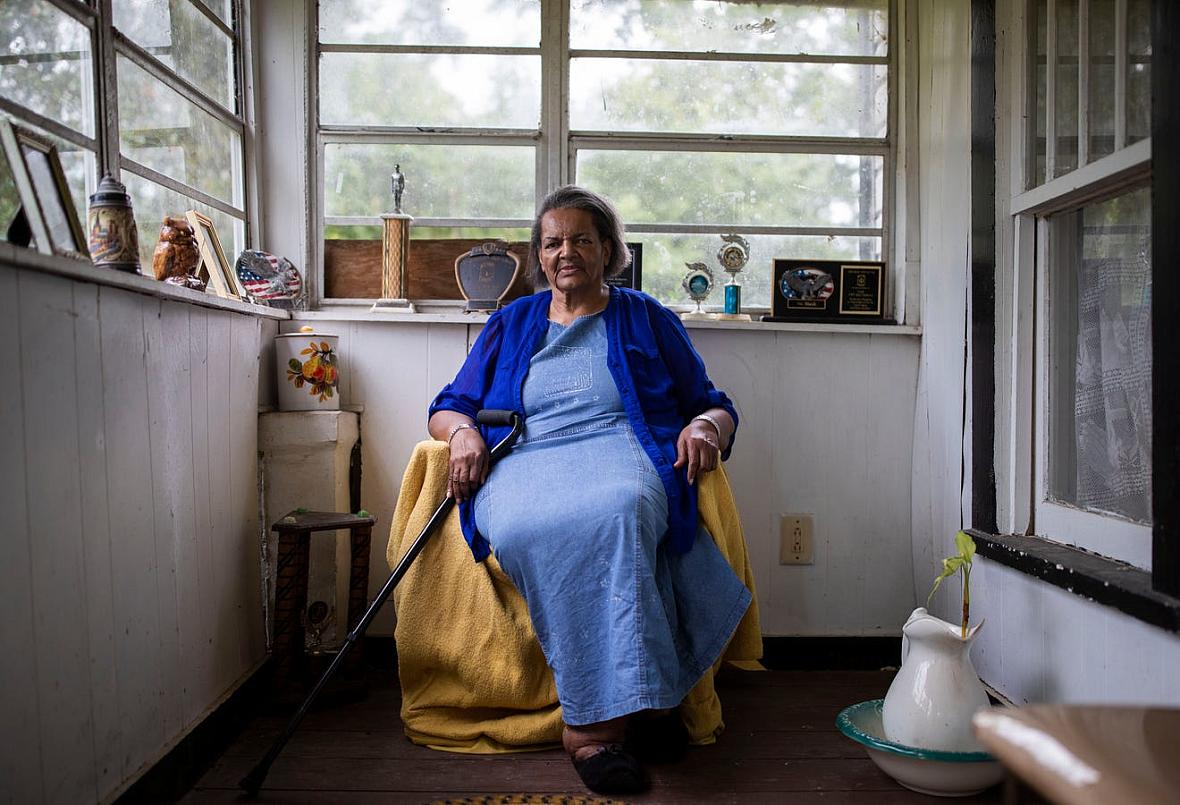
Rebecca Gray, 75, does not have a car and has to come all the way to Tallahassee for her doctor's appointments, which is even harder nowadays because of the pandemic.
Alicia Devine/ Tallahassee Democrat
QUINCY — When Rebecca Gray was pregnant with her daughter, her hands began to quiver, she started to wake up with night sweats and felt constantly parched.
Gray, who was in her third trimester, was diagnosed with gestational diabetes. Only it didn’t go away when her baby was born. She developed long-term Type 2 diabetes.
She didn’t know it at the time, but Black women who develop diabetes while pregnant have a 52% increased risk of developing Type 2 diabetes when compared with white women, research shows.
The Quincy woman isn’t alone. A third of Black women in the state's only majority-minority Gadsden County have been diagnosed with diabetes, according to state data.
And nearly a quarter of all Gadsden County residents struggle with the disease — the second-highest reported rate in the state.
Diabetes isn't the only problem.Heart disease and lung cancer also plague the rural North Florida county, along with a host of other maladies that put it at the bottom of Robert Wood Johnson health outcome rankings: No. 65 out of the state's 67 counties.
Though some health outcomes have improved over the past few years, the vulnerable population’s concentration of health issues mirror the risk factors for contracting COVID-19.
The virus has magnified deep-seated systemic health-care inequities, including access to services, which have put minority communities like Gadsden at greater risk for health complications. The county's former hospital, Gadsden Memorial, struggled to stay open and shut down several years ago. Since then, data has shown there is one doctor for every 5,000 people in the county.
As of Friday, the county, which was flagged by the CDC as a national hotspot, had at least 2,111 coronavirus cases, the second-highest rate in Tallahassee’s surrounding areas. Twenty-nine people have died of the virus — one more than in Leon County, which has about four times the population.
Along with nursing homes, further aggravating the case count are deaths and mounting numbers out of Florida State Hospital, the state’s largest psychiatric facility in Chattahoochee on the northwestern edge of the county. There, workers and residents have complained of a lack of PPE and sanitation efforts. The state has been tight-lipped about the outbreak, seldom releasing infection counts.
A shortage of services and transportation trouble
Federally recognized as a health professional shortage area, residents like Gray often have to drive to Tallahassee for most health appointments. For Gray, who lives in the outskirts of Quincy, that's a 60-mile round-trip drive.
After her long-term diabetes diagnosis four decades ago, Gray also developed high blood pressure and congestive heart failure. But the 75-year-old woman struggles to get to her cardiologist and podiatrist, both in Tallahassee. The woman, who is a partial amputee and can barely see due to diabetes complications, can't drive.
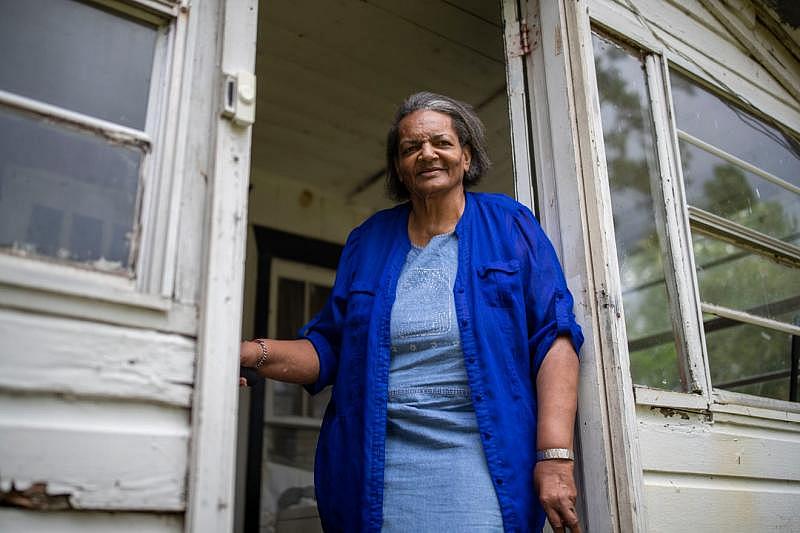
“When you have to pay $28.50 going one way to Tallahassee and pay the same thing on the way back — a lot of them give up on going to the doctor,” she says of seniors like herself living in the rural county.
Her insurance, UnitedHealth through Medicare, has a contract with Uber to offer transportation to health appointments. But often, the capital city-based drivers are either unreliable or don’t find it profitable to drive all the way into her remote St. Johns neighborhood and back to Tallahassee for her appointment, she says.
“Oh, brother,” Gray says with a big sigh, holding her walking stick as she sits in the living room of her 1923 wooden-framed family home, where the floors slant and white paint peels. “When you have transportation that is not a guaranteed thing, your life is basically in the hands of other people when it comes to getting you back and forth to doctor’s appointments."
A few years ago, Lyft and the University of Southern California received a $1 million grant to study whether taking rides helps improve seniors’ health by reducing no-show rates and ease feelings of loneliness.
Gray herself has missed several appointments: drivers either don't show up, or, with insurance only partially covering the cost of a ride, she can't scrape enough cash to pay for it.
It leads Gray and her fellow chronically ill residents to "give up on going to the doctor."
Johnnie Mae McWhite, 68, who also has high blood pressure and diabetes, drove recently to her mammogram appointment at Governor’s Square. Twice last year, she visited Patients First Urgent Care off Interstate 10 on Thomasville Road for walking pneumonia and an anxiety attack.
The county of about 45,600 people has only one emergency room run by Capital Regional Medical Center in Quincy.
“There’s nothing in Gadsden County. You don’t even have LabCorps to have your blood drawn,” McWhite said. “If you had an emergency and you need a doctor, you have to come way into Tallahassee.”
Sonia Garcia lives that struggle. West of Quincy is her 2-square-mile Gadsden County town of Greensboro.
Sonia Garcia, 33, and her son Zayden, 6 spend time together Thursday afternoon, Aug. 20, 2020. Zayden has epilepsy, mild autism, hydrocephalus of the brain, and asthmas. Alicia Devine/Tallhassee Democrat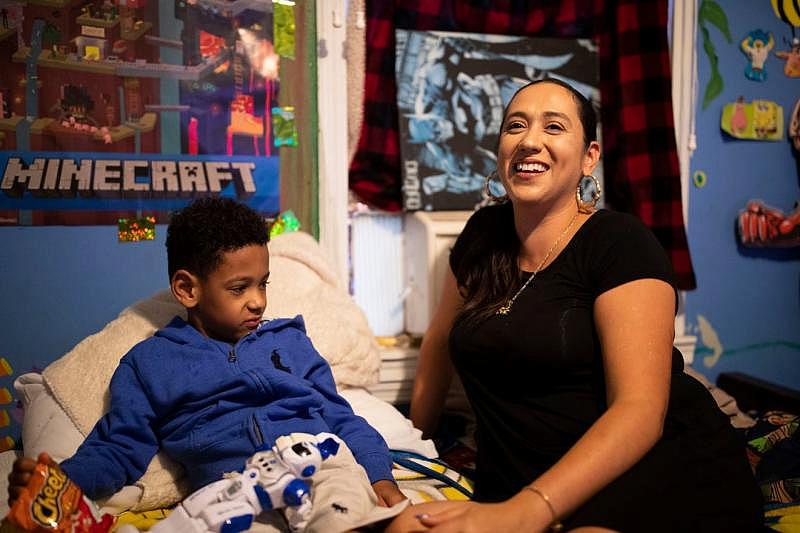
Garcia, 34, has lived in the community all her life, down the street from the town's only stop light. Her 6-year-old son Zayden struggles with asthma, epilepsy and hydrocephalus, a buildup of fluid in the brain.
Each year, Garcia rushes her son to the emergency room for asthma-related breathing problems. Because of the coronavirus, she hopes this year is different.
"Already before this virus, he was already going to the hospital whenever the weather changed," said Garcia, a counselor for at-risk youth. "It’s been tough. Thank God that none of my family members have gotten sick yet."
Zayden is one of almost 400 children from Gadsden County to go to Tallahassee Memorial HealthCare's emergency room for asthma or asthmatic symptoms — a hallmark occurrence for families facing health disparities.
As the virus continues to loom, so does the vulnerability of Gadsden's older adults and children with health issues like Zayden.
Garcia said, "I’m praying we don’t have to go again this year."
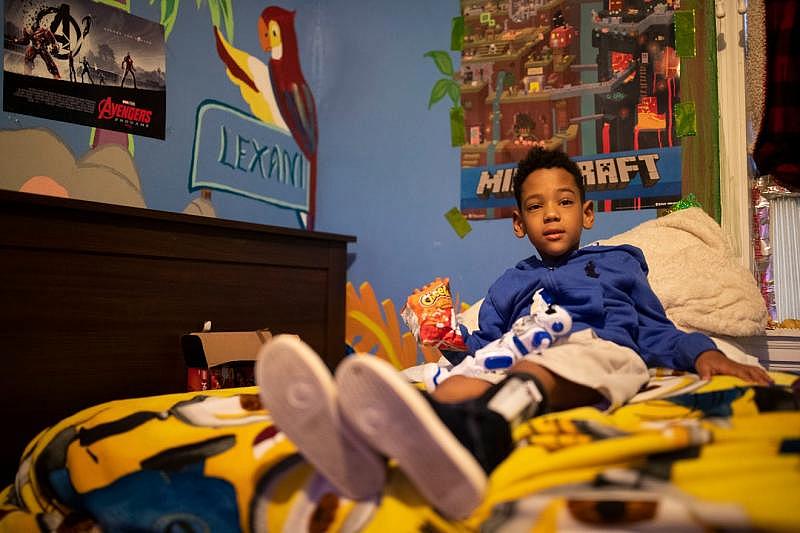
Serving the underserved
Health advocates in Gadsden and Leon counties have been trying to alleviate the access difficulties faced by people like Zayden and Gray.
“When you live in the outlying areas and you don’t have a car, that’s $20 you have to pay somebody. People just choose not to come in,” says Arrie Battle, a 78-year-old local volunteer whose family has been in Gadsden County for generations. "It’s a problem. People have to make the decision to go to the doctor in Tallahassee or Quincy — or buy food."
Nearly a quarter of people live in poverty in Gadsden, which was devastated by Hurricane Michael two years ago.
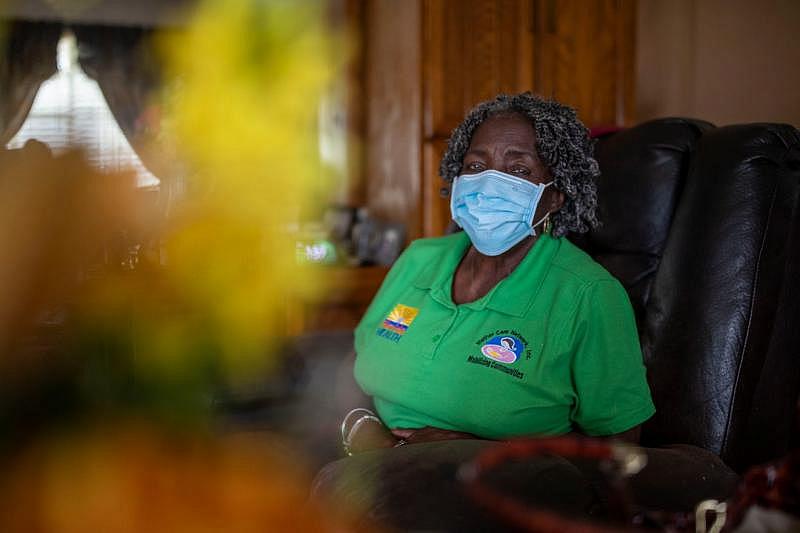
Outside her brick home in Quincy, Battle has potted peace lilies along her front porch. Each represents a cousin, a sister, a colleague — each of whom died from cancer or diabetes complications.
Working with Leadership Gadsden, the local health council and her nonprofit, the Mother Care Network, Battle received donations to help facilitate mobile testing sites throughout the vast county of small towns.
For decades, the well-connected woman has made it her mission to help improve the health of her underserved community. She's started several projects throughout the years, including Project HIGH, "Helping Individuals Get Healthy," a family-based health education program.
"Most of us are tired of Gadsden County being known for negative stuff ... I want to see Gadsden County being known for positive before I die," Battle said. "I would love for FSU and FAMU medical schools to get together and do a teaching hospital over here, where the residents could go in for treatment. I would love for every household to have a computer so they can do telemedicine."
Penny Ralston, a public health and aging expert at Florida State University, has been running Healthy Hearts, a program between 45 churches in Leon and Gadsden — about half in the latter. Through year-long workshops, Ralston trains pastors and other church leaders on healthy eating, exercise and other wellness habits. Those religious leaders then pass on that knowledge to their congregants. Nowadays, the workshops are virtual.
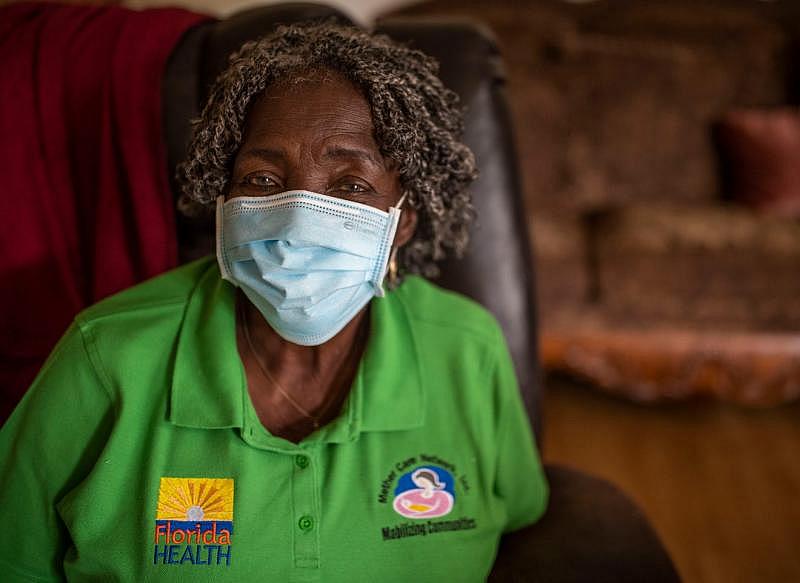
“The mission is to reduce the risk of cardiovascular disease and accompanied risk factors,” she said. “All these underlying conditions — heart disease and the risk of strokes and diabetes — all those things kind of roll together. Think about health and prevention and trying to reduce risk so that people are remaining safe during this (pandemic) period.”
Funded by a federal grant, the model facilitates networks already established within the county. With more than 500 churches throughout Gadsden, “that is the way to reach people.”
But there are folks in Gadsden not involved in churches, she notes. “One strategy is not going to meet all the needs. It’s certainly a model to reach a certain population,” she said.
Also, because of Gadsden's sprawling geography and residents' lack of transportation, Ralston says health care approaches in more urban sites like Tallahassee don't work.
"A health-care organization will come into Quincy and they’ll try to do something and they don’t get the numbers they want to sustain it," she said. She referenced Battle's mobile testing sites as a model for "these rural villages in Gadsden County ... that teaches institutions how to address health issues" in rural counties.
If only, both Ralston and Battle say, lawmakers and agencies would "listen."
[This story was originally published by Tallahasse Democrat.]

